01 - Understanding India and China in South Asia ...
http://dx.doi.org/10.31703/girr.2022(V-II).0110.31703/girr.2022(V-II).01 Published : Jun 2022
-
India is often recognized as a powerful country, but a careful study brings to the light that China has a more favorable position vis-a-vis India in South Asia. Many reasons can be put in favor of this argument.First, South Asian countries view China as a more reliable partner in the region in the long run. China's card could always help South Asian countries to evade the overwhelming Indian influ... Details
-
China, India, South Asia, A Great Power Rivalry
-
(1) Muhammad Nauman Akhter
PhD International Politics, Shandong University, China
02 - US China Trade War: Implications for the World...
http://dx.doi.org/10.31703/girr.2022(V-II).0210.31703/girr.2022(V-II).02 Published : Jun 2022
-
In 2018, a trade war started between USA and China. Both the countries started to apply tariffs against each other. In March 2018, the USA applied tariffs on imports from China. Then in return, China also applied tariffs on a few products. With time, this trade war between both economies raised, and its further intensification made both countries suffer through imposed tariffs. Tariff wars between... Details
-
US-China Trade War, Tariff War, Economic Impacts
-
(1) Muhammad Arif Khan
Assistant Professor, Department of International Relations, Federal Urdu University of Arts Science and Technology, Karachi Sindh, Pakistan.
(2) Shahnawaz Muhammad Khan
Assistant Professor, Department of International Relations, Federal Urdu University of Arts Science and Technology, Karachi Sindh, Pakistan.
03 - Pak-Afghan Border Fencing and its Impact on the Political Identity of the Shinwa...
http://dx.doi.org/10.31703/girr.2022(V-II).0310.31703/girr.2022(V-II).03 Published : Jun 2022
-
This study deals with the impacts of border fencing on the political identity of the Shinwari tribe,which strides the Torkham border. Both quantitative and qualitative methodologies are employed to investigate the potential impacts. The sampling for it was carried out on the basis of Disproportionate Stratified Random Sampling in quantitative methodology; and Subjective Sampling in the qualitative... Details
-
Pak-Afghan Border, Shinwari Tribe, Torkham Border, Lwarrgai, Afghanistan
-
(1) Asfandyar Shinwari
Mphil, University of Peshawar, KP, Pakistan.
(2) Syed Sami Raza
Associate Professor, Department of International Relations, University of Peshawar, KP, Pakistan
(3) Muhammad Zubair
Assistant Professor, Political Science, University of Peshawar, KP, Pakistan
04 - Taliban, Indirect Rule and the FCR Factor...
http://dx.doi.org/10.31703/girr.2022(V-II).0410.31703/girr.2022(V-II).04 Published : Jun 2022
-
This study provides for the indirect governance structure which existed in the tribal areas of the then Indian northwest and its repercussions in the form of the rise of Taliban militancy in these tribal areas after 2001 with a major focus on South and North Waziristan. In order to carry out this research, both secondary and primary sources and survey methods were used. Secondary sources include b... Details
-
Taliban, FCR Factor, Waziristan, India, Pakistan, Constitution, Militancy
-
(1) Farman Kakar
Lecturer, Department of Humanities, Education and Psychology, Air University, Islamabad, Pakistan.
05 - India- Pakistan Relations and Causes of Inconsistency...
http://dx.doi.org/10.31703/girr.2022(V-II).0510.31703/girr.2022(V-II).05 Published : Jun 2022
-
India-Pakistan relations have always been fraught with ambiguity and the pursuit of positive and negative interactions at the same time. Despite both countries' good intentions and noble sentiments for one another, deep-seated apprehensions and historical experiences continue to shape their perspectives on one another. Three factors have historically been viewed by Indians to be impediments to nor... Details
-
India, Pakistan, Kashmir, Relations, Conflicts, Nuclear, Power
-
(1) Anwar Shah
PhD Scholar, Department of Pakistan Studies, Islamia College University Peshawar, KP, Pakistan.
(2) Hamida Bibi
Assistant Professor, Department of History and Pakistan Studies, Shaheed Benazir Bhutto Women University, Peshawar, KP, Pakistan.
06 - Benchmarking Performance using Data Envelopment Analysis: A Case of the Banking ...
http://dx.doi.org/10.31703/girr.2022(V-II).0610.31703/girr.2022(V-II).06 Published : Jun 2022
-
Customers' needs drive the competitive nature of today's business environment. To achieve desired outcomes, resources must be transformed effectively and efficiently. Performance evaluation is one of the most important benchmarking tools for modern businesses due to sophisticated technologies, computerized processes, communication, and fierce competition. The study analyzed the performance of 26 c... Details
-
Data Development, Analysis, Banking Sector, Benchmarking
-
(1) Taqi Ullah Khan
Lecturer, Government College of Commerce No. 2, Dera Ismail Khan, KP, Pakistan.
(2) Farhat Ullah Khan
Assistant Professor, Institute of Business Administration, Gomal University, Dera Ismail Khan, KP, Pakistan.
(3) Umer Ahmad
Ph.D Scholar, Institute of Business Administration, Gomal University, Dera Ismail Khan, KP, Pakistan.
07 - Rise of Baloch Insurgency: Domestic and International Factors ...
http://dx.doi.org/10.31703/girr.2022(V-II).0710.31703/girr.2022(V-II).07 Published : Jun 2022
-
The article discusses the history and highlights the events in Balochistan during the colonial time and the post-partition era. The focus is on the insurgencies of the Baloch against the state including the present one. It discusses the characteristics of the province along with the social set-up and the political and economic situation of the Baloch. It is necessary to acknowledge the perception ... Details
-
Balochistan, Insurgencies, Identity, Militants, International, Political, Economic
-
(1) Mariam Asif
Lecturer, National Institute of Pakistan Studies, Quaid-e-Azam University, Islamabad, Pakistan.
(2) Shaukat
Lecturer, Department of Political Science, Abdul Wali Khan University, Mardan, KP, Pakistan
(3) Yunas Khan
Assistant Professor, Department of Pakistan Studies, Islamia College University, Peshawar, KP, Pakistan
08 - Linkage Between US invasion of Iraq, Arab Spring and Emergence of Daesh: Beginni...
http://dx.doi.org/10.31703/girr.2022(V-II).0810.31703/girr.2022(V-II).08 Published : Jun 2022
-
The role of Iran is essential to analyze the politics of the Middle East. Post 9/11 few events such as the USA invasion of Iraq, the Arab spring and the emergence of Daesh has altered the traditional power structure of the region and also enhanced the role of Iran in the politics of the region. This study analyzes the role of domestic and structural factors in the shaping of the foreign policy beh... Details
-
Iran, Iraq, Power, Rivalry, Invasion, Daesh, Ideology
-
(1) Fozia Bibi
Assistant Professor, Department of Political Science, Rawalpindi Women University, Rawalpindi, Punjab, Pakistan.
(2) Lubna Abid Ali
Professor, Department of International Relations, National Defence University, Islamabad, Pakistan.
09 - Friends or Foes: An Editorial Discourse on Pak-US Relations ...
http://dx.doi.org/10.31703/girr.2022(V-II).0910.31703/girr.2022(V-II).09 Published : Jun 2022
-
Historically, the relations between Pakistan and United States have hardly converged. Pakistan closely cooperated with US on the issues related to stabilization of peace, counter terrorism and on the issues concerning the presence of Osama bin Laden and Haqqani Network in Pakistan. Haqqani Network has been a source of diplomatic tension between United States and Pakistan relations. Therefore, the ... Details
-
Haqqani Network, Pak-US relations, Critical Discourse Analysis, Pakistan, United States
-
(1) Amna Zulfiqar
Assistant Professor, Department of Media and Communication Studies, National University of Modern Languages, Islamabad, Pakistan.
(2) Faiza Khalid
Lecturer, Department of Media and Communication Studies, National University of Modern Languages, Islamabad, Pakistan.
(3) Qasim Mahmood
Assistant Professor, Department of Media and Communication Studies, National University of Modern Languages, Islamabad, Pakistan.

 Volume VII, Issue III (Summer 2024)
Volume VII, Issue III (Summer 2024) 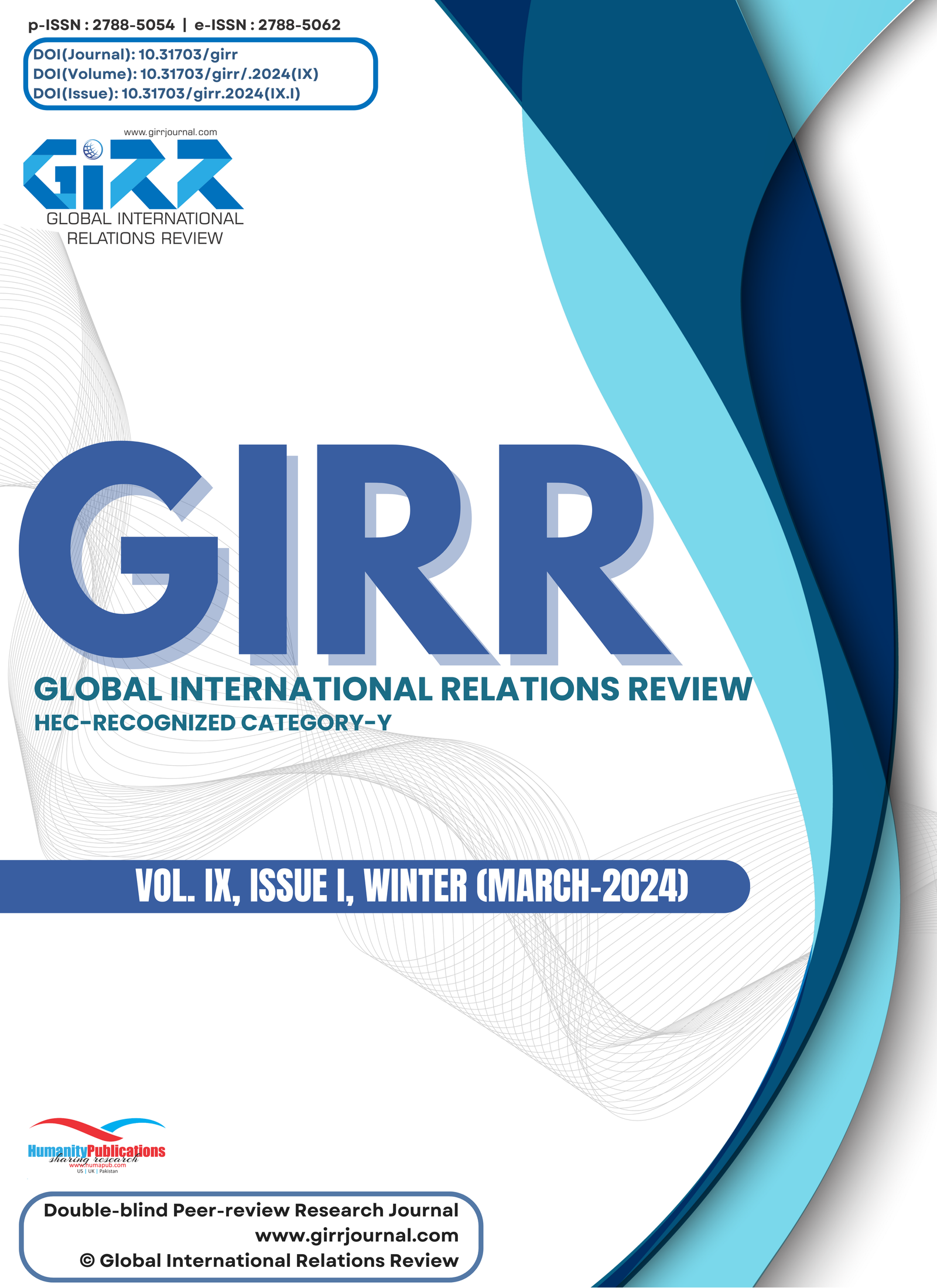 Volume VII, Issue I (Winter 2024)
Volume VII, Issue I (Winter 2024) 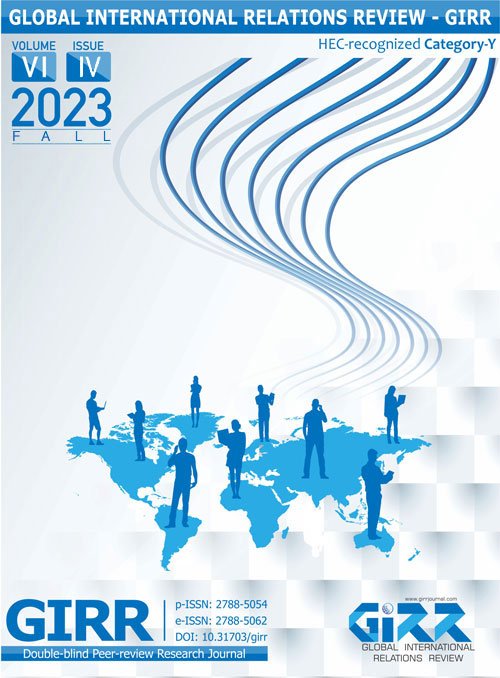 Volume VI, Issue IV (Fall 2023)
Volume VI, Issue IV (Fall 2023) 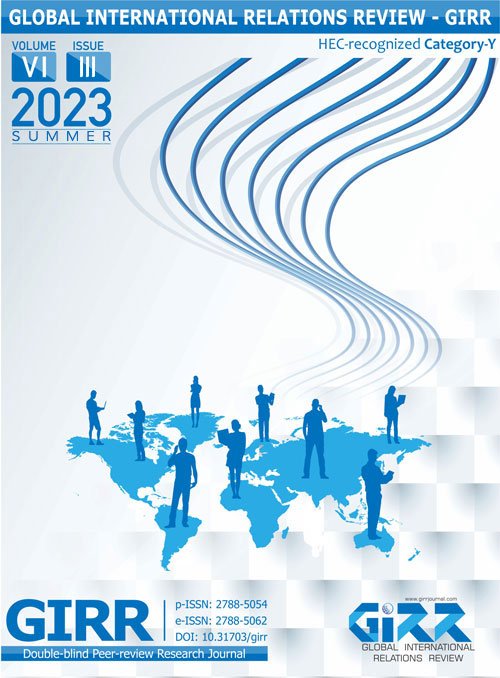 Volume VI, Issue III (Summer 2023)
Volume VI, Issue III (Summer 2023) 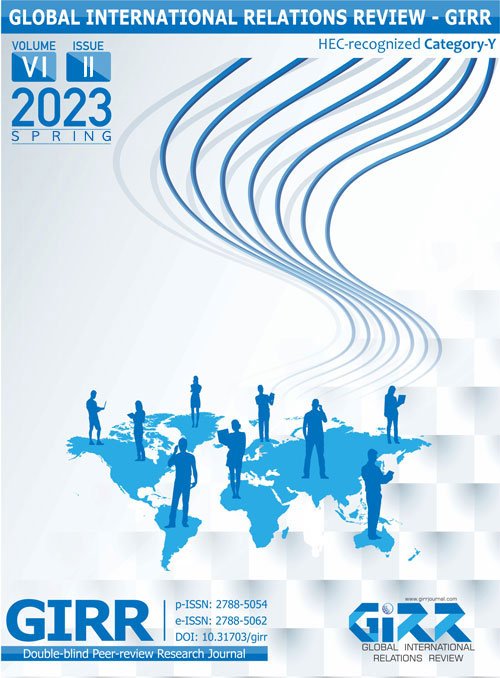 Volume VI, Issue II (Spring 2023)
Volume VI, Issue II (Spring 2023)  Volume VI, Issue I (Winter 2023)
Volume VI, Issue I (Winter 2023)  Volume V, Issue IV (Fall 2022)
Volume V, Issue IV (Fall 2022) 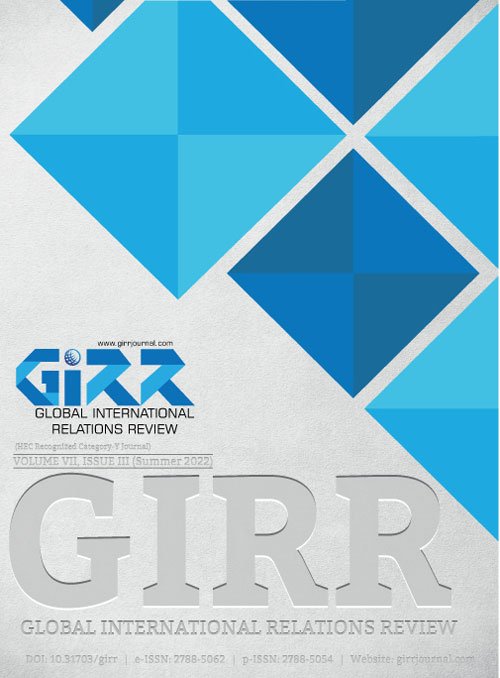 Volume V, Issue III (Summer 2022)
Volume V, Issue III (Summer 2022)  Volume V, Issue II (Spring 2022)
Volume V, Issue II (Spring 2022)  Volume V, Issue I (Winter 2022)
Volume V, Issue I (Winter 2022) 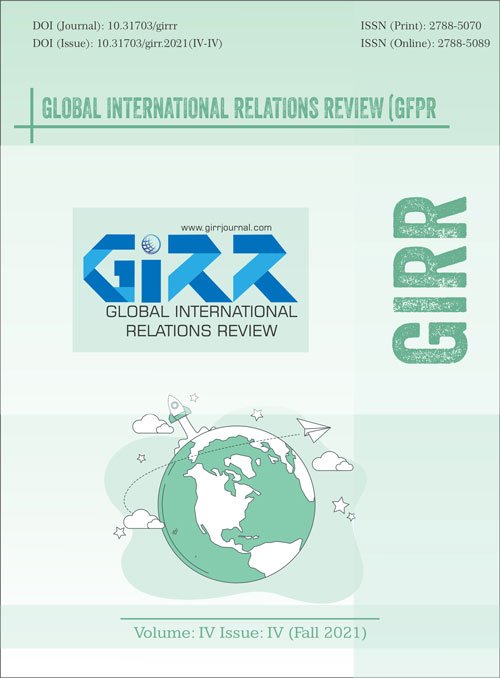 Volume IV, Issue IV (Fall 2021)
Volume IV, Issue IV (Fall 2021) 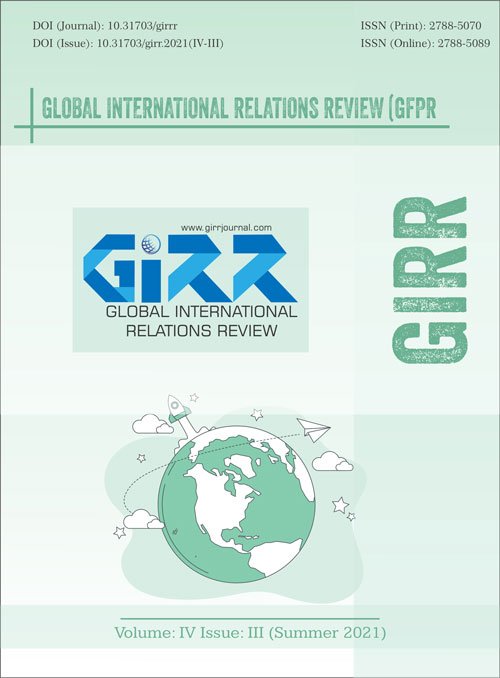 Volume IV, Issue III (Summer 2021)
Volume IV, Issue III (Summer 2021)  Volume IV, Issue II (Spring 2021)
Volume IV, Issue II (Spring 2021) 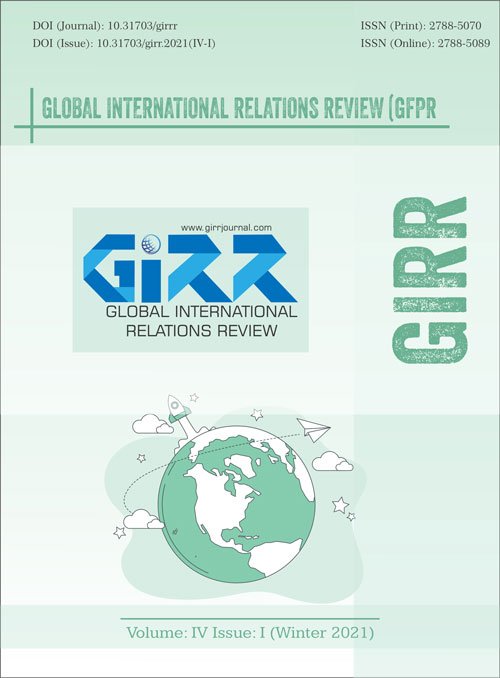 Volume IV, Issue I (Winter 2021)
Volume IV, Issue I (Winter 2021)  Volume III, Issue I (Fall 2020)
Volume III, Issue I (Fall 2020)  Volume II, Issue I (Fall 2019)
Volume II, Issue I (Fall 2019)  Volume I, Issue I (Fall 2018)
Volume I, Issue I (Fall 2018)